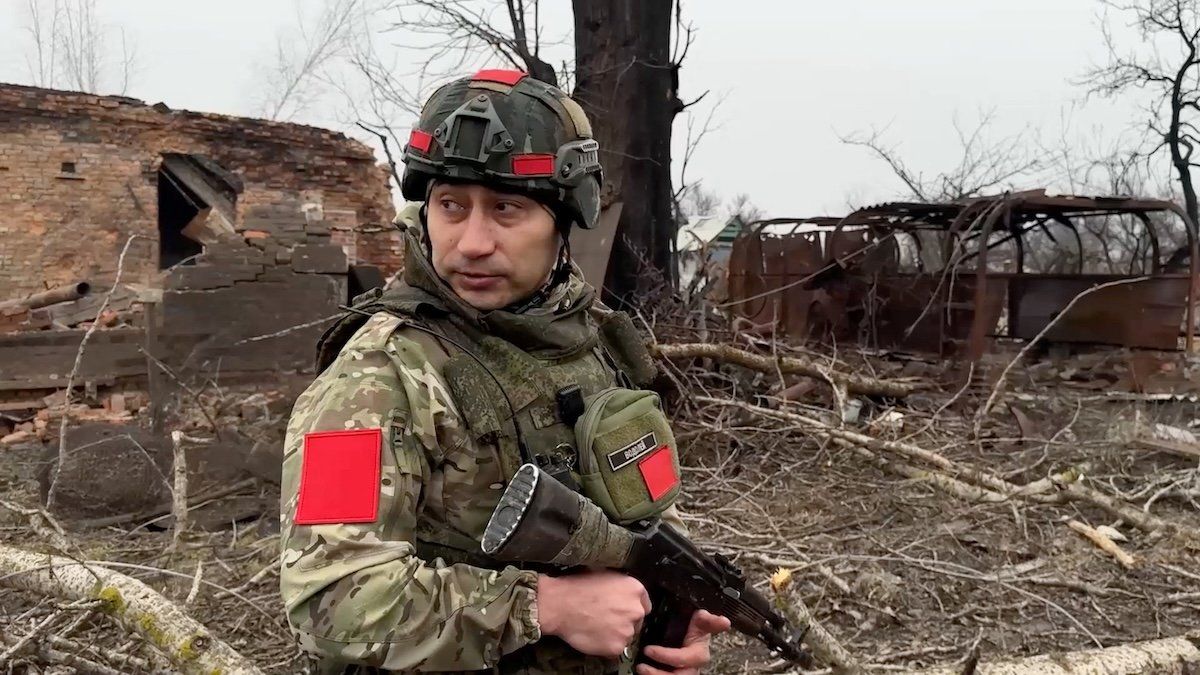A Russian army soldier walks along a ruined street of Malaya Loknya settlement, which was recently retaken by Russia's armed forces in the course of Russia-Ukraine conflict in the Kursk region, on March 13, 2025.
Russian President Vladimir Putinsaid Thursday that he supports a US-brokered 30-day ceasefire with Ukraine, in principle, but imposed major conditions ahead of talks with US envoy Steve Witkoff in Moscow.
He explained that he’s opposed to anything that would allow Ukraine to regroup and rearm or compromise Russia’s momentum, in which troops are “advancing practically everywhere” along the front. He also asked who would oversee and enforce a ceasefire along “more than 2,000 kilometers” of frontlines.
A day earlier, Putin visited troops in Kursk, a Russian region where Kremlin forces are currently routing Ukrainian troops who have occupied parts of the region since August.
Putin said a ceasefire could not be used for those Ukrainians to go back to Ukraine. “There are two options,” he said, “surrender or die.”
Most ominously: Putin said any settlement had to address the “long term” and “root causes” of his 2022 invasion. The Kremlin has long pushed for a change in Ukraine’s government, demilitarization of the country, international recognition of Russia’s annexation of Crimea and other Ukrainian territories, and a ban on Ukraine joining NATO.
These terms, functionally a surrender, are not ones that Ukraine could agree to willingly, which puts the ball back in the US court.
Putin said he would like to speak with Donald Trump who, also on Thursday, said that he was open to the idea but that “we have to get it over with fast.”
And that’s the problem: Trump wants fast, Putin wants slow, and the US may not have the leverage, or the willingness, to change his clock.